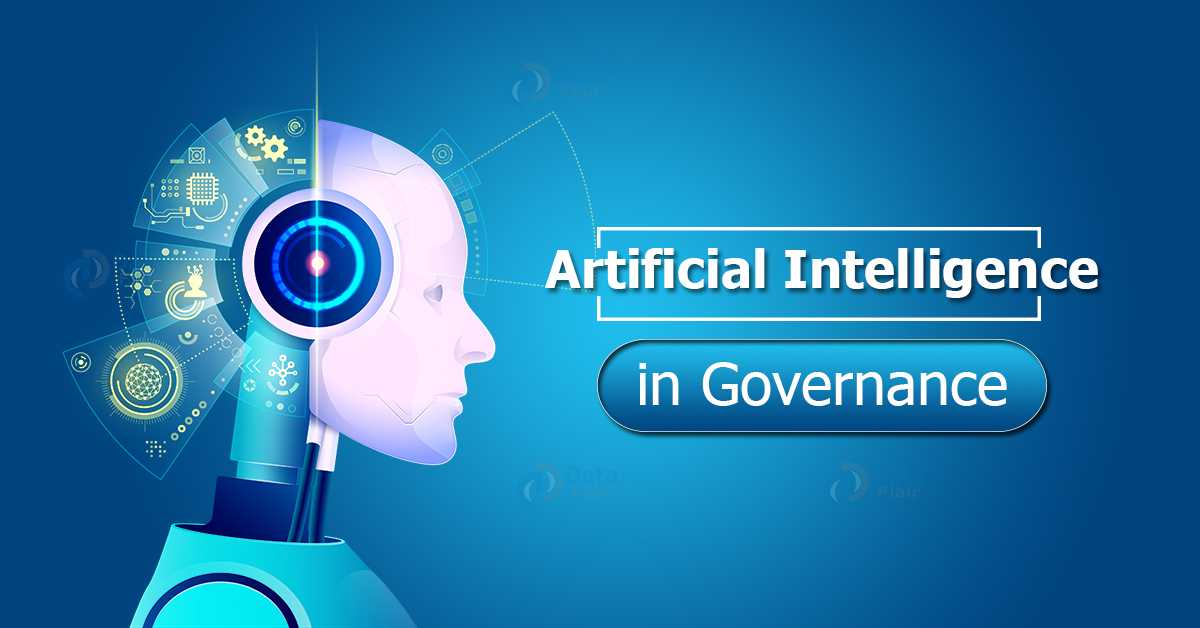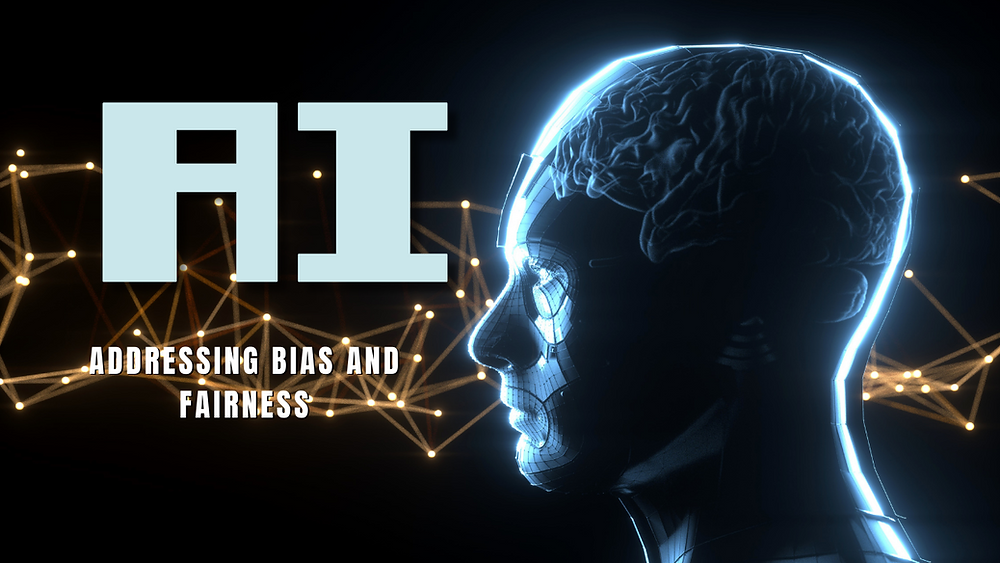NAvigating the Ethical Frontier: Responsible Implementation of AI tools in the era of AI Governance
INTRODUCTION
In the ever-evolving realm of governance Artificial Intelligence stand as a transformative force, reshaping traditional models and redefining the very fabric of administrative processes. The integration of AI into governance system represents a paradigm shift, offering unprecedented opportunities to enhance efficiency, transparency and responsiveness. Government worldwide are increasingly turning AI technologies to optimize decision-making, streamline operations, and better serve their constitutions. From predictive analytics guiding policy formulation to smart cities employing AI for seamless urban management, the impact of AI in governance is palpable. This technological evolution is not merely about automating tasks, it signifies a fundamental restructuring of how societies are governed. AI system are capable of processing vast amount of data, identifying patterns, and generating insights that empowers policymakers to make informed choices. As the boundaries between the digital and governmental spheres blurs, the ethical considerations of AI in governance come to the forefront, necessitating the delicate balance between technological advancement and safeguarding the right and values of citizens.

The Rise of AI Governance
The asadency of AI in Governance mark a revolutionary chapter in the evolution of administrative practices. As governments across the globe embrace AI technologies, a profound transformation unfolds, ushering in an era where data-driven decision making and technological innovation converge. This rise signifies more than just the adoption of advanced tools, it symbolized a seismic shift in the very nature of governance. AI empowers administrations to navigate complexities, predict future trends, and optimize resource allocations with unprecedented precision. From bolstering cybersecurity measures to streamlining public services and fostering smart cities initiatives, the rise of AI in Governance propels society towards a future where efficiently, adaptability, and citizen-centric solutions coalesce. However, with this remarkable ascent comes a pressing need for ethical frameworks and responsible AI governance to ensure that the benefit of technological progress are equitably distributed, and the right and privacy of individuals are safeguarded.
The rise of AI in governance is not merely technological trajectory but a dynamic reconfiguration of the government landscape, promises a future where innovation and ethical considerations harmoniously shape the way nations are led.

Transparency and Accountability
One of the fundamental pillars of responsible AI implementation is transparency. It involves making AI system understandable, explainable, and accountable for their decisions. The lack of transparency in AI algorithms can lead to unintended biases, discrimination and the perpetuation of existing societal inequalities. As part of AI governance, organization must prioritize transparency ensuring that the inner workings of AI systems are accessible and comprehensible to users and stakeholders. Furthermore, accountability is crucial in holding developers and organizations responsible for the consequences of their AI implementations. A clear line of responsibility ensures that ethical are at the forefront of AI development and deployment, reducing the risk of negative societal impacts. It serves as a bedrock of ethical AI implementation within governance frameworks. As AI assumes an increasingly pivotal role in decision-making processes, the imperative for openness becomes paramount. Transparent AI algorithms empower citizens to comprehend how decisions are made, promoting trust in govermental system, it ensures that the intricate algorithms guiding policies and services are not shrouded in obscurity.
Accountability, on the other hand demands that those responsible for their outcomes. Governments must establish robust mechanisms to monitor, evaluate, and rectify any biases or unintended consequences that may arise from AI applications.

Addressing Biases and Fairness
Addressing Bias and ensuring fairness in AI applications within governance is an imperative tasks that demands meticulous attention.As AI algorithms increasingly influence policy decisions and public services, the risk of inadvertently perpetuating or amplifying existing biases loom large. Government undertaking the integration of AI must prioritize the development and implementation of algorithms that are rigorously tested for fairness and free from discriminatory patterns. By incorporating diverse perspectives during the development phrase and continually auditing can strive for fairness and inclusivity. Moreover, fostering transparency about the measures taken to address bias is crucial for building public trust. As AI becomes an integral part of governance, the ethical imperative to mitigate biases underscores the responsibility government bear in harnessing technology for the collective benefits for all citizens, without perpetuating or exacerbating societal disparities.

Privacy and Security Concerns
AI system often rely on vast amount of data to learn and make predictions. However, this resilience raises serious privacy concerns. Effective AI governance must include robust measures to protect individuals privacy and ensures that sensitive data is handled responsibly. Encryption data anonymization and clear consent mechanisms are essential components of ethical implementations. Similarly, as AI technologies becomes more pervasive, there is an increased risk of cyber threats and attacks targeted AI systems. AI governance frameworks should incorporate security measures to safeguard AI technologies from malicious exploitation, ensuring the integrity and reliability of these systems. The integration of AI in governance introduces profound advancements, but it also raises intricate concerns regarding privacy and security. As governments AI to harness vast amount of sensitive data, the potential for encroachment on individual privacy becomes a focal point. Striking a delicate between balance between leveraging the benefit of AI for effective governance and safeguarding citizens, privacy rights requires meticulous attention.
Robust data protection measures, stringent access controls and encryption protocols are imperatives to shield sensitive information from unauthorized access or malicious use. Furthermore, the development of AI in surveillance and law enforcements necessitates clear guidelines to prevent unwarranted intrusions into citizens private lines.

Ethical Decision-Making and Human Oversight
Ethical decision making and human oversight stand as indispensable pillars in the realm of AI governance, emphasizing the need for a harmonious coexistence between technology and human values. While AI system excels in processing vast datasets and deriving insights, ethical considerations, such as fairness, accountability, and transparency require human judgement and moral reasoning. Governments must establish robust ethical frameworks that guide the development, deployment and continuous monitoring of AI applications. human oversight play a pivotal role in ensuring that decisions made by AI align with societal values and norms. It act as a check and balance mechanism, preventing the entrenchment of biases or unintended consequences. Striking this delicate balance between involves empowering human decision-making to intervene, question, and redirect AI processes when necessary.
This collaborative approach not only upholds ethical standards but also fosters a synergy between human intuition and machine intelligence, creating a governance landscapes where technology serves as a tool for positive societal transformation while respecting the core principles that define our collective humanity.

